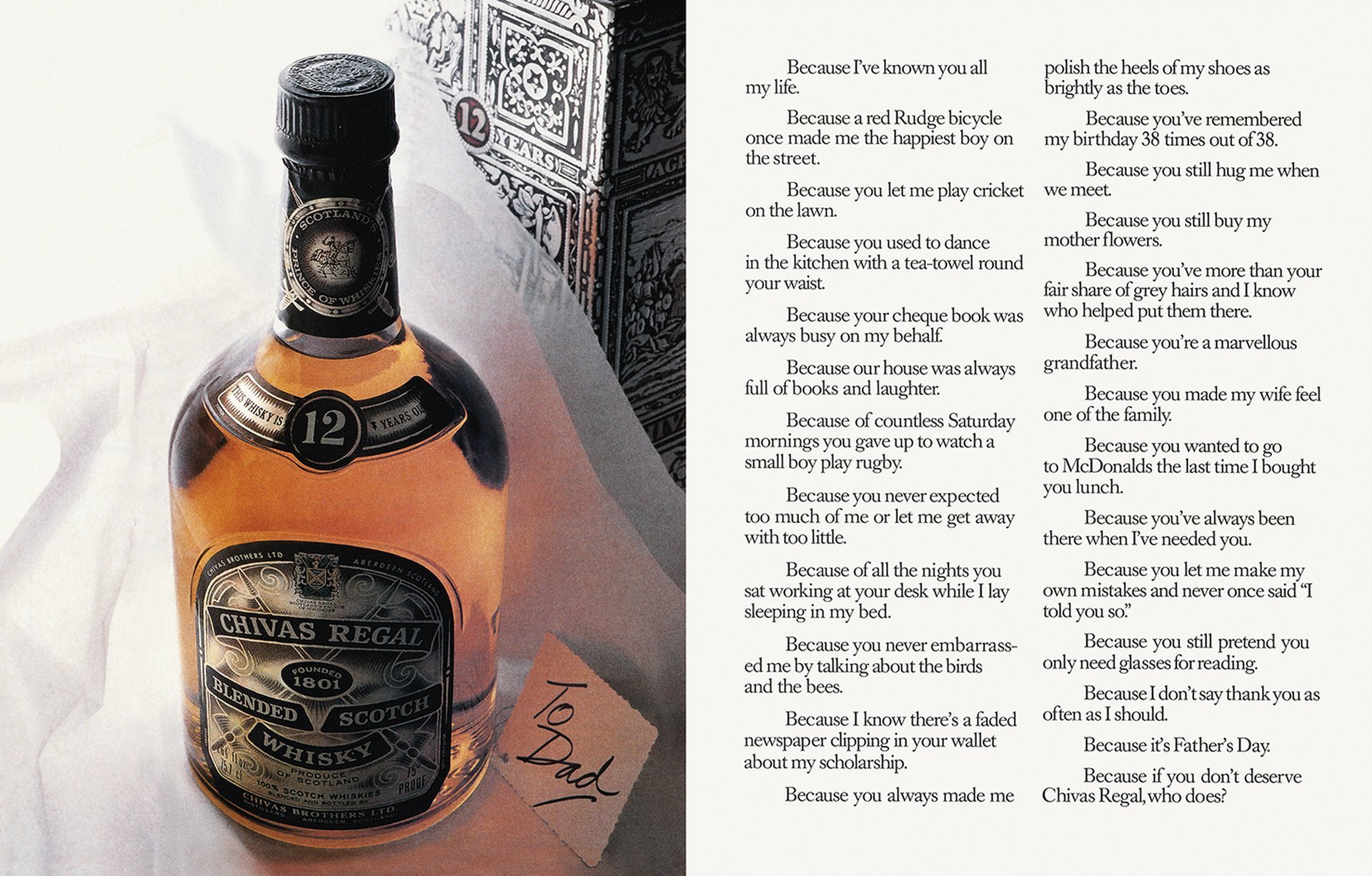I’m sick and tired and nervous.
Sick because my toddler’s sick. Tired because my newborn’s restless. Nervous because public speaking frightens me.
But when Joe Glover invites you to talk about copywriting on The Marketing Meetup with folks like Dave Harland and Vikki Ross, you don’t let stage fright deter you. You say yes, please, thank you — and you go.
“Eddie,” Joe says, “I’ll pick on you next.”
His question:
“What’s your favorite piece of copy and why?”
He’s asking everybody on the panel. Dave just spoke. It’s my turn now. I’ve the floor. I look down and scratch the bridge of my nose.
“Ya, so…” I clear my throat, “so thanks for having us, by the way…” I look right. “It’s a real honor…” I look left.
A few days prior to the show, Joe tells us he would ask this question. So I try to be thoughtful. I make some notes.
“I appreciate you telling us the question ahead of time,” I say, “so, uhm, I could prepare an example, uhm…”
What you’re about to read is a heavily edited version of what I say next. I wrote it because after the show, more than one person suggested I turn my answer into a “micro-essay” — and I thought that was a good idea.
Never miss a VeryGoodCopy Micro-Article: SUBSCRIBE
I’ve taken out the “ahs” and “uhms” and extra words — the nasally congestion, too — and I’ve added the things I should’ve said but didn’t. Either because I forgot or because it didn’t come to me in the moment. Or because I couldn’t bring myself to speak the words.
Anyway.
Please, enjoy.
Explaining one of the great ads of all time:
My daughter, Sofia, is only a few weeks old.
Her brother, Beau, our first, is two.
It’s interesting: when he was Sofia’s age and I was a brand new dad, cradling my son, I don’t think I understood what I was holding. I knew it was something precious, of course, something priceless. But I couldn’t grasp what he would mean to me as time went on. I couldn’t grasp the enormity of fatherhood, the bond it creates, the love it creates. It was hard to conceptualize these things before I actually lived them.
But now, years on, the pendulum has swung. I’m awake, and it’s completely overwhelming. And every day is getting more intense. And all the little things they do — every milestone, every first — it all feels very profound to me.
And I’ve been told it works both ways: all the little things I do, all the typical things I do (or don’t do, for that matter) will eventually feel profound to my kids.
This ad captures this verity, I think, which is why it resonates so universally.
It’s Chivas Regal’s “Father’s Day” ad.
One of the revered, timeless examples of print marketing, composed by copywriting great, David Abbott:
It almost always gets me.
Especially lately.
And it’s just this stupid thing, this stupid ad he wrote to sell stupid whiskey.
But it’s also not:
“This ad is about Chivas Regal,”said Abbott, “but it’s also about me and my father. (I really did have a red Rudge bicycle). It’s a risky ad and, for some people, it’s sentimental,” he said, “but I know others who say that it vividly echoes their own experience.”
Let me explain this last part:
The “vividly echoes” bit (because it’s what makes this ad great ).
People saw themselves in Abbott’s own world — and for many, including me, it was even a kaleidoscopic experience.
For example:
I read it as a son and I think about my own dad, about how I’m not close to him, about how our relationship is fractured in many ways, even broken. We don’t hug when we meet, me and dad. Sometimes we won’t even look at each other. So I read this ad as a son and I can’t relate to it. And I feel pain.
But when I read it as a father, thinking about my own kids, it’s aspirational. And I think dear God if I got a note like this from Beau, or from my daughter, it would be the happiest moment, the most incredible thing, knowing my kids feel this way about me.
And so these thoughts I’m having — these connections I’m making between an ad about whiskey and the most important people in my life — is evidence that writing great copy often boils down to illustration:
How well can you show the prospect a moment in time?
Because copywriting is all about moments, these small slices of life. And if you can impart these things in a way that generates a feeling and then you connect that feeling to a product:
This is how you compel people.
This is how you sell things.
And David Abbott does so masterfully in this ad.
It’s a masterclass in “show-don’t-tell” writing, short on details, leaving holes for The Reader to fill in with their own memories, their own life. This, ultimately, is the source of its emotion and power: it “vividly echoes” the human experience.
We’re not being told a message.
We’re being shown scene after scene:
And the result is a kind of mental movie.
And it affects us, as a good movie would.








